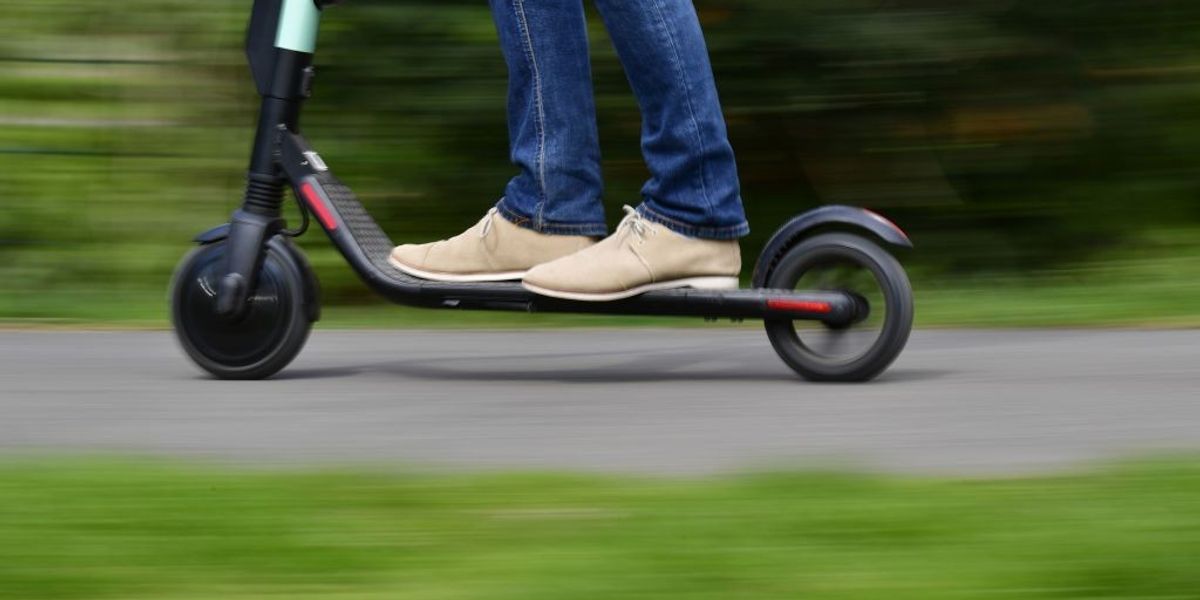Experts have warned there could be spikes in casualties on UK roads after plans to legalise e-scooters were brought to light this week.
It comes after the Transport Secretary Louise Haigh signalled plans to legalise private e-scooters on UK roads, despite ongoing safety concerns around the controversial vehicles.
Now experts have warned that there could be a rise in e-scooter misuse as more riders get ready to enter UK roads with pedestrians at risk.
At a recent Transport Committee meeting, Haigh indicated to MPs that the Government intends to introduce legislation allowing wider public use of e-scooters, which are currently restricted to rental schemes in specific trial areas.
Do you have a story you’d like to share? Get in touch by emailingmotoring@gbnews.uk
But the move has been met with mixed responses, with IAM RoadSmart Director of Policy and Standards Nicholas Lyes stating: “We know that around half of all casualties involving e-scooters are outside of trial areas, which demonstrates the ‘wild west’ nature of private e-scooter misuse that is happening on our roads and pavements.”
He “cautiously” welcomed plans to legalise their use but warned that it must be accompanied by minimum type approval device standards and speed limiters. He added that proposals for riders must also have a minimum level of “competency prior to using these devices on the road”.
Meanwhile Richard Dilks, chief executive of CoMoUK, stated that legalisation is the “only way to grow and lock in the impressive popularity of the shared e-scooter trials for the long term, as well as being the only way to have a clear and safe definition of private e-scooters and their use”.
He added: “We know we have to attract people away from the use of private cars, and e-scooters are one mode of transport that can help to do this, ideally a part of an integrated, sustainable transport offer.”
Under current laws, privately owned e-scooters cannot be legally used on roads or pavements as they fall under the same regulations as motorbikes and cars.Only Government-backed rental schemes, which have been operating since summer 2020, are exempt from these restrictions.
These rental e-scooters must meet specific requirements, including a maximum speed limit of 15.5mph and a weight limit of 55kg.
Users must be over 18 to hire the vehicles, which can only carry one person and must be fitted with an electric motor no more powerful than 500W. But the rental schemes have been repeatedly extended beyond their original end date of August 2020 to gather more data on their impact.
Speaking to MPs, Haigh said: “We’ve not got parliamentary time in this session or a relevant Bill that could be used to regulate e-scooters, but we will look to legislate, absolutely.
“It’s clearly required. It’s not good enough that it’s been left in this situation for too long.”The Transport Secretary suggested e-scooters could be a “really effective part of an integrated transport strategy,” particularly for those with reduced mobility.
However, she acknowledged concerns, noting there are “undoubtedly issues around parking and around street litter,” and stressed the need to “really carefully analyse” journey patterns and behavioural impacts.
Department for Transport figures revealed 11 e-scooter riders and one pedestrian died in crashes across Britain in 2022.A total of 1,480 injuries were recorded that year, including 1,138 riders, 232 pedestrians and 50 cyclists.
The data also revealed a significant increase in collisions, with 1,402 incidents in 2022 – approximately 650 more than the previous year.
LATEST DEVELOPMENTS:
The rise in accidents has coincided with growing fire safety concerns, with 199 fires involving e-bikes or e-scooters reported in 2023, according to the Office for Product Safety and Standards. The majority of these fire incidents were reported by the London Fire Brigade.

